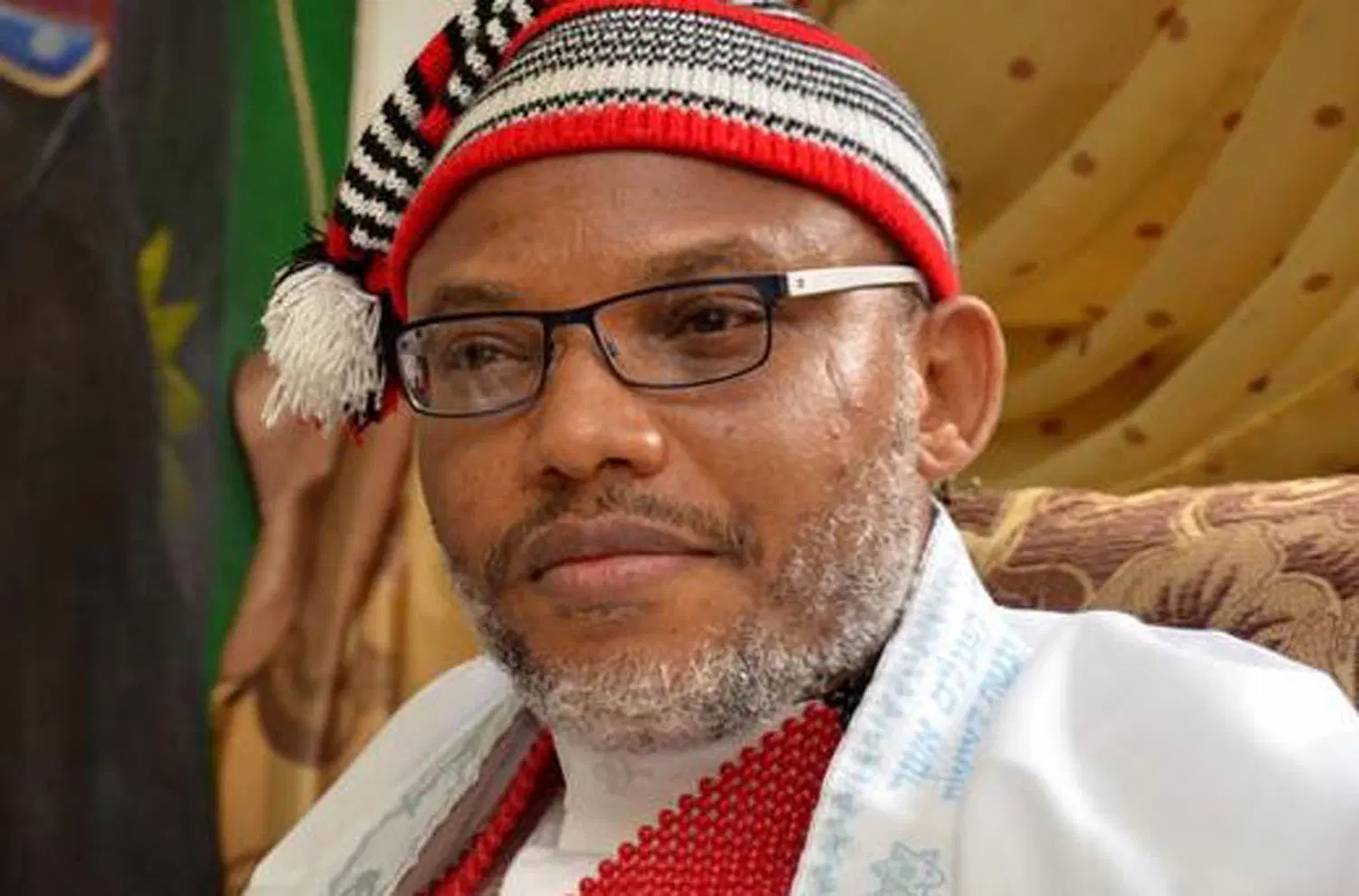A Federal High Court in Abuja has sentenced Nnamdi Kanu of the proscribed separatist group Indigenous People of Biafra (IPOB) to life imprisonment upon his conviction for the offence of terrorism.
Justice James Omotosho, while concluding his judgment on Kanu’s trial on Thursday, sentenced him to life imprisonment in relation to counts one, two, four, five and six of the seven-count charge in which he was prosecuted by the Department of State Services (DSS).
For count three, relating to the offences of belonging to a proscribed terrorist group, Justice Omotosho sentenced him to 20 years’ imprisonment without an option of fine.
On count seven, relating to his unlawful importation of a radio transmitter for the purpose of furthering the clandestine activities of Radio Biafra, which is not registered in Nigeria, the judge sentenced him to five years’ imprisonment without an option of fine.
The judge, who noted that Kanu had been unruly throughout the trial, said the law allowed the court to sentence him to death for the terrorism offences, but that he, as a Christian, chose to be merciful to the defendant.
Justice Omotosho ordered that the defendant be kept in protective custody in any part of the country, but not in Kuje Prison, Abuja, and that the radio transmitter be forfeited to the Federal Government.
The Guardian reports that Justice Omotosho had earlier ordered the removal of Kanu from the courtroom after he became unruly during proceedings.
The judge had earlier dismissed three fresh motions filed by Kanu, stating that they lacked merit. The applications were brought after the case had already been adjourned for judgment.
As Justice Omotosho moved to deliver his ruling, Kanu objected, insisting that the court could not proceed because he had not filed his final written address. Raising his voice, he accused the judge of bias and said the court “did not know the law”.
Following the outburst, Justice Omotosho directed security personnel to remove Kanu from the courtroom. The judge continued reading the final judgment in his absence.





